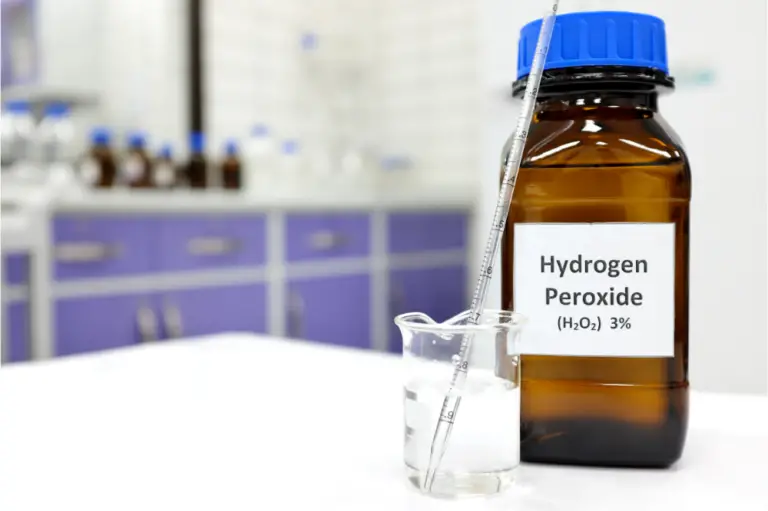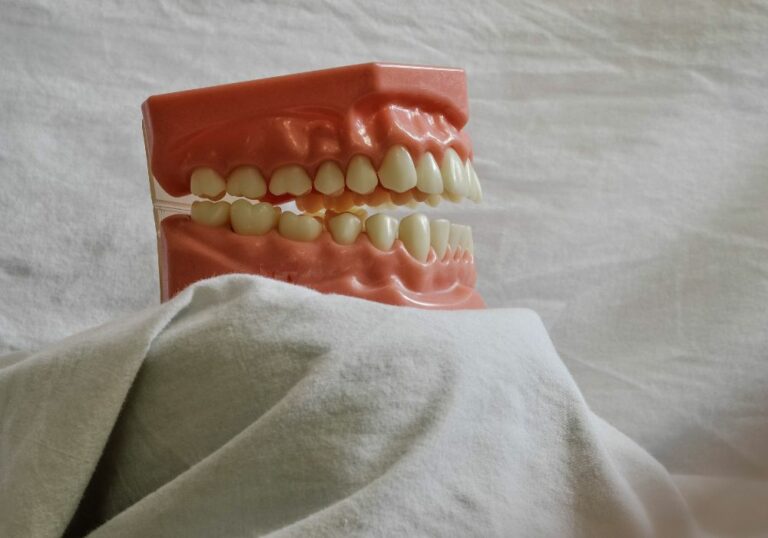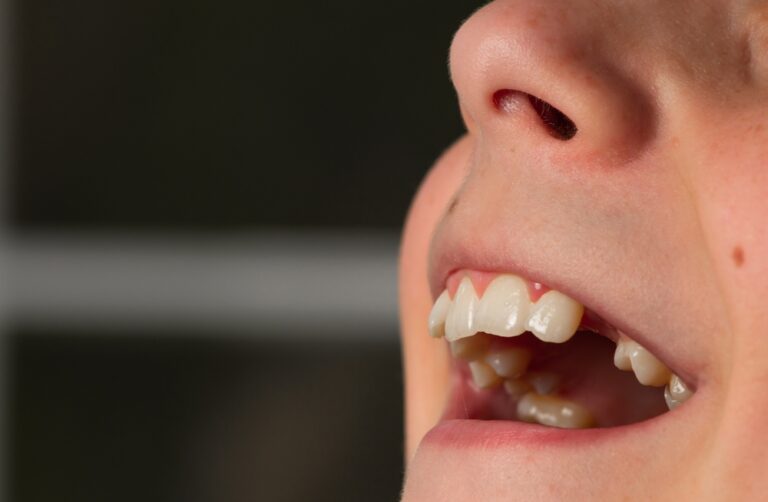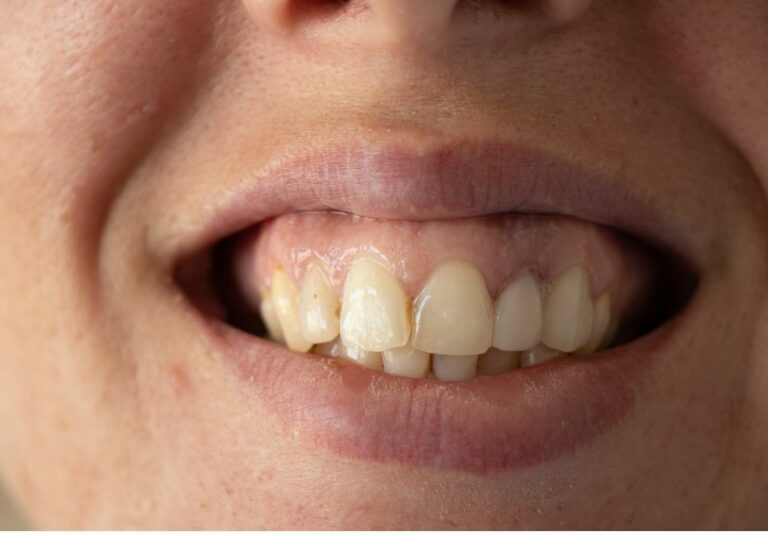Have you ever wondered what happens to your gums when you have no teeth? Many people believe that once they lose their teeth, they no longer have to worry about dental care. However, this is far from the truth. In fact, without the cover that teeth provide, your gums are left open to bacteria and food, which can cause gum disease.
Gum disease, also known as periodontal disease or gingivitis, is caused by the buildup of bacteria in the shape of dental plaque. The plaque releases toxins that result in the inflammation and irritation of gums. This can lead to a variety of problems such as redness, swelling, and bleeding. Without proper care, gum disease can even progress to periodontitis, which can cause the bone that supports your teeth to be destroyed, leading to tooth loss.
So, what can you do to maintain healthy gums without teeth? It’s important to continue practicing good oral hygiene, such as brushing your gums and tongue twice a day and flossing daily. Additionally, visiting your dentist regularly for checkups and cleanings can help prevent gum disease and catch any issues early on. With proper care, you can keep your gums healthy and avoid the negative effects of gum disease.
Understanding Gums
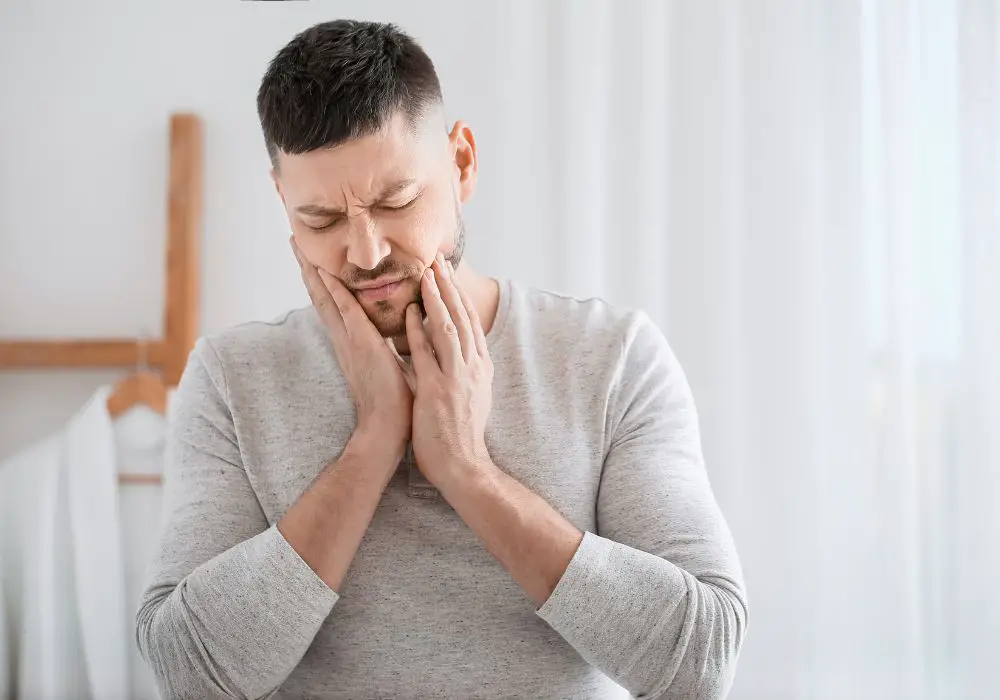
Even without teeth, your gums play an important role in your overall oral health. Your gums, also known as gingivae, are the pink tissues that surround the base of your teeth in your upper and lower jaws. They provide a protective barrier for the underlying bone and help to anchor your teeth in place. Here are some things you should know about your gums:
Gum Disease Can Still Occur
Without the cover that teeth provide, your gums are left exposed to bacteria and food particles. This can lead to the buildup of plaque, which can cause gum disease. Gum disease, also known as periodontal disease, can cause inflammation and irritation of your gums. It can also lead to the destruction of the bone that supports your teeth, which can cause them to become loose or even fall out.
Gum Health is Important
Maintaining healthy gums is important, even if you don’t have any teeth. Brushing your gums twice a day with a soft-bristled brush can help to remove any food particles and bacteria that may have accumulated. Flossing daily can also help to remove any debris that may be stuck between your teeth and gums. Additionally, using an antimicrobial mouthwash can help to kill any remaining bacteria and freshen your breath.
Gum Care Tips
Here are some tips to help you maintain healthy gums:
- Brush your gums twice a day with a soft-bristled brush.
- Floss daily to remove any debris between your teeth and gums.
- Use an antimicrobial mouthwash to kill bacteria and freshen your breath.
- Visit your dentist regularly for checkups and cleanings.
- Avoid smoking and using tobacco products, as they can increase your risk of gum disease.
Effects of Tooth Loss on Gums
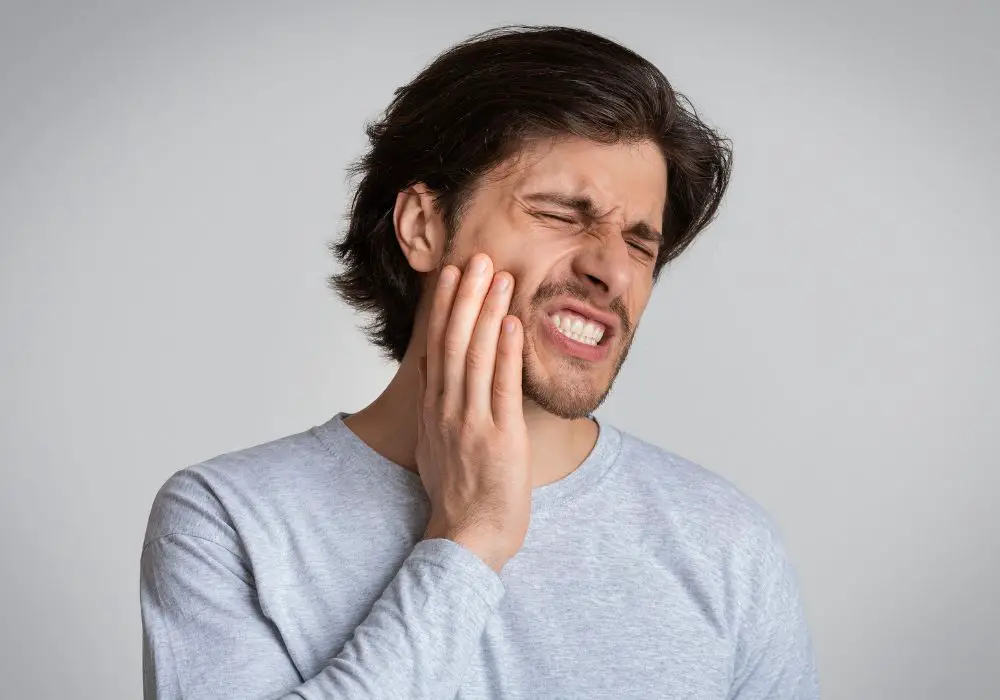
Losing teeth can have a significant impact on the health of your gums. Here are some of the effects that tooth loss can have on your gums.
Shrinkage and Recession
When you lose a tooth, the bone that once supported it begins to shrink. This can cause the gums to recede, or pull back from the teeth. As a result, the roots of nearby teeth may become exposed, which can lead to sensitivity and pain.
In addition, gum recession can create pockets between the teeth and gums, which can trap food particles and bacteria. This can increase the risk of gum disease, which can lead to further tooth loss.
Changes in Facial Structure
Teeth play an important role in supporting the structure of your face. When you lose teeth, the jawbone can begin to shrink, which can cause the face to appear sunken or saggy. This can make you look older than you actually are.
In addition, the loss of teeth can affect your ability to chew properly, which can lead to digestive problems. It can also affect your speech, making it difficult to pronounce certain words.
To prevent these issues, it is important to replace missing teeth as soon as possible. Dental implants, bridges, and dentures are all options that can help restore your smile and protect the health of your gums.
Gum Disease and Tooth Loss
Losing your teeth can have a significant impact on your oral health. Your gums are left exposed and vulnerable to bacteria and food debris, which can lead to gum disease and tooth loss. In this section, we will discuss two types of gum disease that can occur when you have no teeth: Periodontitis and Gingivitis.
Periodontitis
Periodontitis, also known as gum disease, is a serious infection of the gums that can damage the soft tissue around your teeth. Without proper treatment, periodontitis can cause your teeth to loosen and eventually lead to tooth loss. Poor oral hygiene is the most common cause of periodontitis.
Symptoms of periodontitis include:
- Red, swollen, or bleeding gums
- Persistent bad breath
- Painful chewing
- Loose teeth
If you experience any of these symptoms, it’s important to seek dental treatment right away. Treatment for periodontitis may involve deep dental cleaning or, in severe cases, surgery. Regular brushing and flossing can help prevent periodontitis.
Gingivitis
Gingivitis is another type of gum disease that can occur when you have no teeth. It is caused by the buildup of bacteria in the form of dental plaque. Gingivitis can lead to more serious gum disease called periodontitis and tooth loss.
Symptoms of gingivitis include:
- Red, swollen, or bleeding gums
- Bad breath
- Tender gums
Good oral health habits, such as brushing at least twice a day, flossing daily, and getting regular dental checkups, can help prevent and reverse gingivitis. If left untreated, gingivitis can lead to more serious gum disease and tooth loss.
Preventing Gum Damage
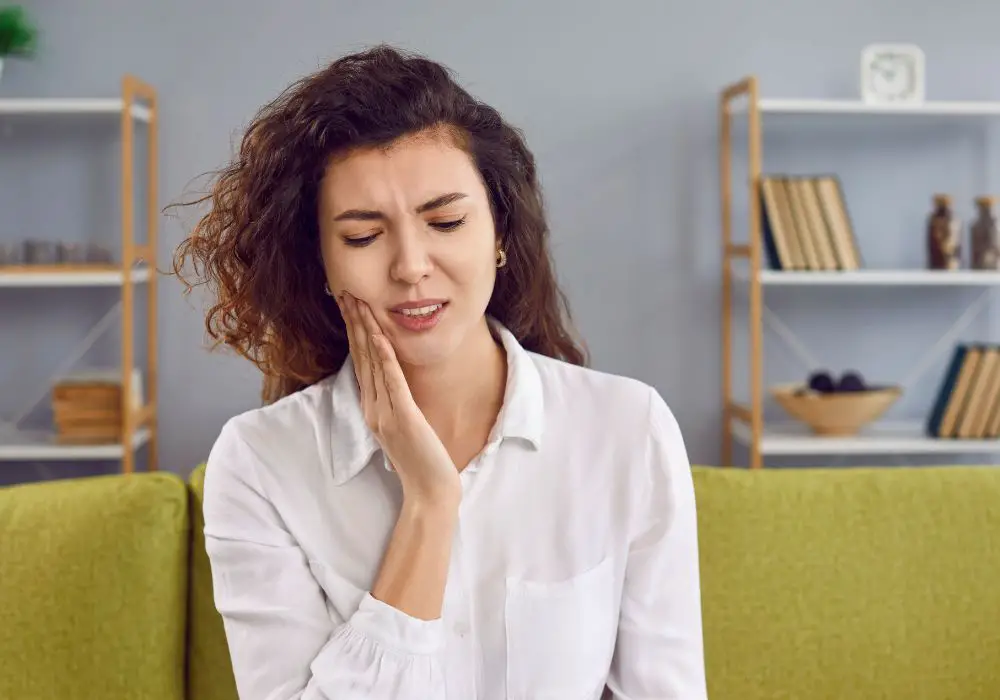
Without teeth, your gums are left open to bacteria and food, which can cause gum disease. To prevent gum damage, it’s important to maintain healthy gums. Here are a few tips to help you prevent gum disease:
- Brush your gums: Even without teeth, it’s important to brush your gums. Use a soft-bristled brush and brush gently in a circular motion to remove any bacteria or food particles. You can also use an antimicrobial mouthwash to help kill bacteria.
- Floss daily: Flossing can help remove any food particles or bacteria that may be stuck between your gums. Be gentle when flossing and use a soft floss or interdental brush.
- Eat a healthy diet: A diet rich in fruits, vegetables, and whole grains can help promote healthy gums. Avoid sugary and starchy foods that can stick to your gums and cause bacteria to grow.
- Quit smoking: Smoking can increase your risk of gum disease and make it harder for your gums to heal.
- Visit your dentist regularly: Even without teeth, it’s important to visit your dentist regularly for checkups and cleanings. Your dentist can help monitor your gum health and provide treatment if necessary.
By following these tips, you can help prevent gum disease and maintain healthy gums even without teeth.
Treatment Options for Toothless Gums
If you have no teeth, it doesn’t mean you don’t need to take care of your gums. In fact, healthy gums are essential for maintaining good oral health. Here are some treatment options for toothless gums:
Dentures
Dentures are removable appliances that can replace missing teeth and surrounding tissues. They can be made to fit either the upper or lower jaw, or both. Dentures can help improve your ability to eat and speak, and they can also help restore your smile.
It’s important to keep your dentures clean to prevent the buildup of bacteria. You should also remove your dentures at night to give your gums a chance to rest. If you experience any discomfort or soreness, you should see your dentist.
Dental Implants
Dental implants are artificial tooth roots that are placed into your jawbone to support a replacement tooth or bridge. They are a more permanent solution than dentures and can help prevent bone loss in your jaw.
However, not everyone is a good candidate for dental implants. You need to have enough bone in your jaw to support the implant, and you need to have healthy gums. If you are considering dental implants, talk to your dentist to see if they are right for you.
Gum Grafts
If you have receding gums, your dentist may recommend a gum graft. This procedure involves taking tissue from another part of your mouth and attaching it to the area where your gums have receded. This can help prevent further gum recession and improve the appearance of your smile.
Gum grafts can be a painful procedure, but they can also be effective in restoring your gum health. Your dentist will give you specific instructions on how to care for your gums after the procedure.
Overall, there are several treatment options available for toothless gums. Talk to your dentist to see which option is right for you.
Maintaining Healthy Gums Without Teeth
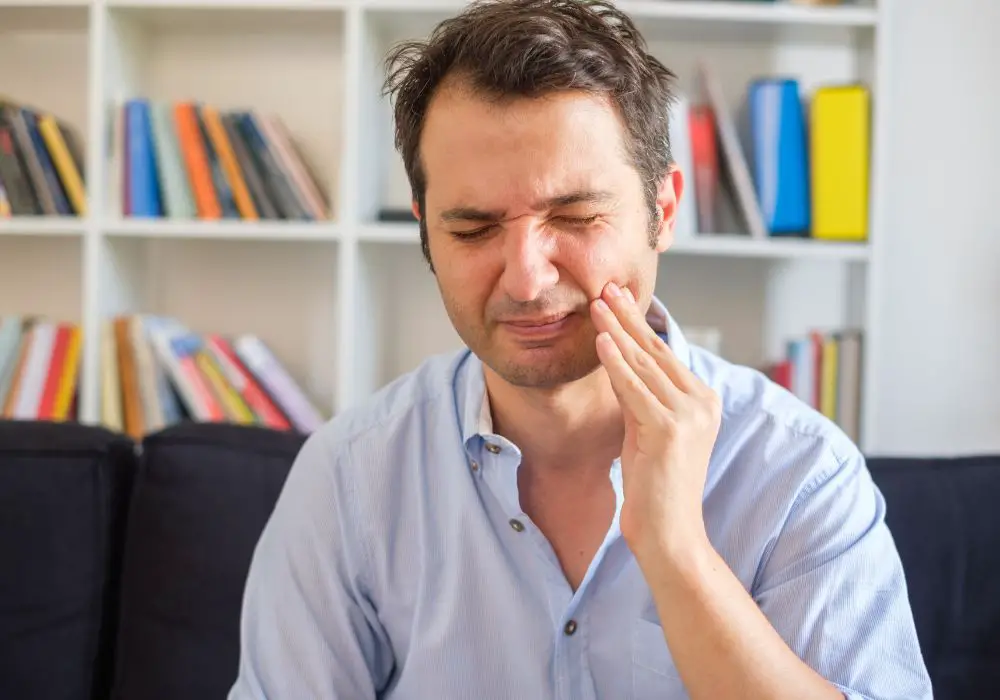
Even if you have no teeth, it’s essential to maintain healthy gums to prevent the buildup of harmful bacteria. Gum care involves regular cleaning and disinfection to prevent gum disease, a common problem for people without teeth. Here are some tips for maintaining healthy gums without teeth:
1. Clean Your Gums
Brush your gums at least twice a day with a soft-bristled brush to remove food particles and plaque. You can use a toothbrush or a specialized gum brush to clean your gums effectively. Be gentle and avoid scrubbing too hard, which can cause irritation and bleeding.
2. Use Mouthwash
A mouthwash can help kill bacteria in your mouth and freshen your breath. Choose an alcohol-free mouthwash that’s gentle on your gums. Rinse your mouth with mouthwash after brushing your gums.
3. Massage Your Gums
Massaging your gums can increase blood flow and promote gum health. Use your fingers to gently massage your gums in a circular motion for a few minutes each day.
4. Visit Your Dentist
Regular dental checkups are essential, even if you have no teeth. Your dentist can examine your gums for signs of gum disease and provide tips for maintaining healthy gums. They may also recommend a specialized cleaning procedure to remove plaque and bacteria from your gums.
5. Eat a Healthy Diet
A healthy diet can help maintain healthy gums. Avoid sugary and acidic foods, which can increase the risk of gum disease. Instead, eat a balanced diet that includes plenty of fruits and vegetables, lean protein, and whole grains.
By following these tips, you can maintain healthy gums even if you have no teeth. Remember to clean your gums regularly, use mouthwash, massage your gums, visit your dentist, and eat a healthy diet.
Frequently Asked Questions
What foods can you eat if you have no teeth?
Even if you have no teeth, you can still enjoy a variety of foods. Soft foods like mashed potatoes, soups, and cooked vegetables can be eaten without teeth. You can also try pureed foods like fruit smoothies, yogurt, and applesauce. Avoid hard, sticky, or crunchy foods that can be difficult to chew or may get stuck in your gums.
How can you clean your gums if you have no teeth?
It is important to maintain good oral hygiene even if you have no teeth. You can clean your gums by using a soft-bristled brush or a damp cloth to gently massage your gums. You can also use a mouthwash or saltwater rinse to help keep your gums clean.
Can your gums get infected if you have no teeth?
Yes, your gums can still get infected even if you have no teeth. Gum disease can cause inflammation and irritation of your gums, leading to bleeding, swelling, and pain. It is important to maintain good oral hygiene and visit your dentist regularly to prevent gum disease.
What are the side effects of not having teeth?
Not having teeth can lead to a variety of side effects, including difficulty chewing and speaking, changes in your facial structure, and decreased self-confidence. It can also increase your risk of gum disease and other oral health problems.
What are the best options for people with no teeth?
There are several options for people with no teeth, including dentures, dental implants, and dental bridges. Your dentist can help you determine the best option for your individual needs.
Why do gums hurt in one spot when you have no teeth?
Gums can hurt in one spot even if you have no teeth due to gum disease, injury, or irritation from dentures or other dental appliances. It is important to visit your dentist if you experience any pain or discomfort in your gums.

